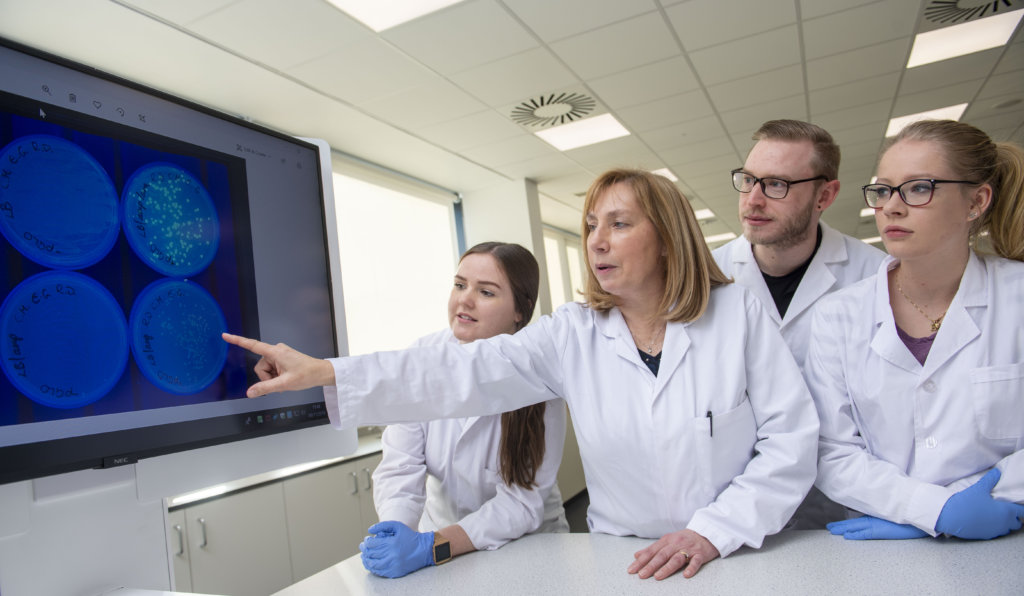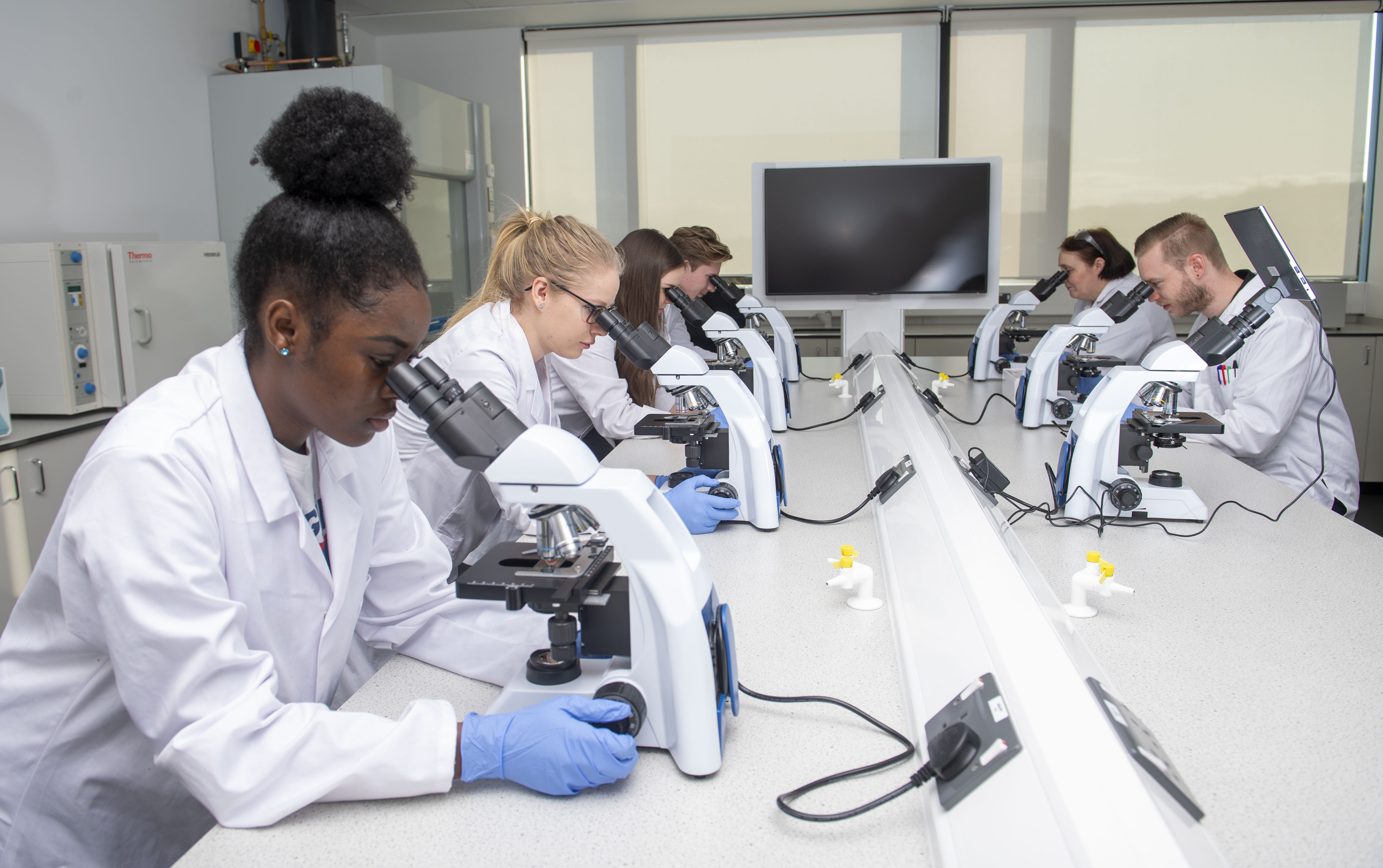“Rewarding, engaging, and encouraging.” That’s how Scotland-born Cara Morton found her time at the University of the West of Scotland (UWS). Ranked among the top 150 young universities worldwide, UWS is making a name for itself in the realm of academia. It is a large, modern, multi-campus university, with teaching spanning across various locations in the west of Scotland, including Ayr, Dumfries, Lanarkshire, Paisley, and one campus in London.
Morton, who works as a full-time NHS Biomedical Scientist, had heard of UWS through her colleagues, many of whom were graduates of the MSc Advanced Biomedical Science programme.
This is no mere coincidence. Many aspiring and practising nursing and allied health professionals are drawn to UWS for its emphasis on career-focused teaching. Its School of Health and Life Sciences is Scotland’s largest provider of health education. It is dedicated to ensuring its students receive the necessary exposure and practice to succeed as fully-realised, capable graduates in a variety of fields across the nursing and allied health sectors.
With this, Morton chose to pursue the programme for herself — and was thoroughly impressed by the mixture of academic and practical knowledge she gained during her studies. This is largely due to the extensive input from biomedical scientists, research scientists, and bioscience experts in designing the curriculum. “As someone who has worked in both private sector and NHS laboratories, I found the teaching to be useful, relevant, and guided by the most recently available evidence-based practice,” she says.

Programmes are interspersed with a variety of experiential learning opportunities as well as options to work alongside studies. Source: University of the West of Scotland
Many programmes at UWS School of Health and Life Sciences have professional body accreditation, ensuring that “the content and structure reflect important concepts in working practice.” “It is not only focused on the theoretical and practical application of routine laboratory investigations, but also encourages an appreciation for quality in service, which is an essential understanding for any working medical laboratory,” adds Morton.
For Alice Rana, studying at UWS has widened her career prospects in exciting ways.
“Working as a care assistant boosted my professional career since I was able to assist residents with a variety of support requirements,” the BSc (Hons) Nursing Studies student shares. “I had hands-on experience with end-of-life care at work, which improved my practical skills and knowledge. Working as a professional developed my communication skills, teamwork abilities, and leadership and management skills, too.”
Programmes are delivered with students’ career prospects in mind — which ensures for a variety of unique opportunities to take advantage of. The MSc Nursing programme, for example, provides an optional eight-week course to support those looking to become NMC-registered in the UK. Other courses with exciting experiential offerings include the Master of Public Health (MPH), BSc (Hons) Biomedical Science, and MSc Biotechnology. The one-year MPH, for example, features two award options: Master of Public Health and Master of Public Health (Professional Practice). The latter adds an additional three months duration to your studies. You will still graduate earlier compared to your peers in the US, where an MPH takes two years to complete. In Southeast Asia, it takes 24 months to complete an MPH (Professional Practice).
UWS programmes offer the maximum flexibility. You can complete the MPH and MSc Biotechnology in 12 months if you opt for a September start and study three consecutive terms. If you start in January, the programme will take 16 months or two years if you opt for the additional Professional Practice route.
The MSc Biotechnology also offers the “Professional Practice” option and develops practical skills. An appreciation of the biotechnology industry – including input from industry speakers – is embedded throughout the programme.

Students have access to excellent research facilities and are taught by highly-ranked researchers in the field. Source: University of the West of Scotland
Students are supported by excellent research facilities, including new research facilities, housing the latest equipment and a specialist infection control suite. It is using these facilities that UWS undertakes, world-leading research, including recent developments linked to COVID-19 and infection control, face masks, and antimicrobial resistance research.
On top of that, they benefit from UWS’s close links with the NHS and other public organisations – not only ensuring that teaching addresses the current needs of the field, but inspiring students in their future prospects, as well. “To be honest, I assumed that after completing my education, I would return to Nepal and use my knowledge and skills to improve the health of my nation,” says Rana. “However, I am now going to apply for NMC registration and a position in the NHS to gain more advanced practical skills to enhance my undergraduate degree knowledge, which I can use back in my own country.”
.All the while, students have access to a supportive community during their time at UWS. “I was able to get on easily with my tutor and am still amazed by the wonderful responses I got from every tutor,” says MSc Nursing student Feyisayo Odutayo from Nigeria.
Rana agrees. “I am extremely grateful to have such excellent tutors for my programme who were extremely professional and supportive during my studies,” she says. “Even during their off hours, they were available. They responded quickly to every email and query I had about my studies. My tutors were also helpful in giving references for job applications.”
All in all, students from UWS graduate with the knowledge, skills, qualities, and characteristics they need to become well-rounded, developed, and responsible individuals ready to thrive in their careers. “As a UK graduate from a globally recognised university, I am certain that wherever I go in the future, I will be a highly professional nurse who will work with a multidisciplinary team,” says Rana.










